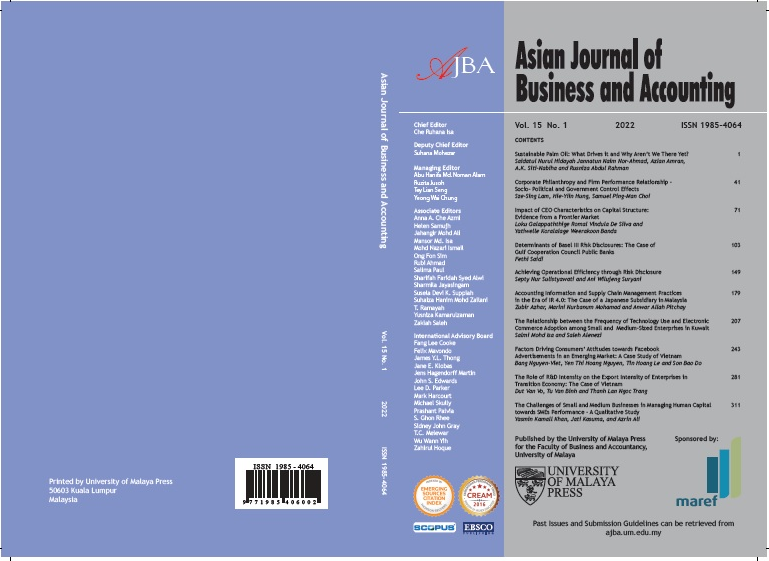The Challenges of Small and Medium Businesses in Managing Human Capital towards SMEs Performance – A Qualitative Study
Main Article Content
Abstract
Manuscript type: Research paper
Research aims: Currently, machinery is replacing most human capital to save cost, but the value of human capital that contributes to the performance of SMEs is invaluable. SMEs were used to explain the connection between human capital and SMEs performance in South Australia.
Design/Methodology/Approach: Five case studies on SMEs in South Australia were used in this study. The analysis of qualitative data entailed data coding, within-case analysis, and cross-case analysis.
Research findings: The cross-case analysis result is unsurprising considering that all five firms depend on their employees to work and keep the firm in operation. The cross-case analysis results are mixed in respect to the connection between human capital and the several types of performance measurement. The results, therefore,
need to be interpreted with caution. SMEs perform solely through the skills, experience, and knowledge of their employees. This distinction occurs when the knowledge and information that employees gain are focused directly on the employee’s initiative, decision-making and critical thinking skills. Investment in human capital should be
done carefully based on the limited resources of SMEs.
Theoretical contribution/Originality: Most research has shown the link between human capital and firm performance. However, the degree to which investment in human capital contributes to the type of performance is yet to be explored based on qualitative data especially regarding SMEs in South Australia.
Practitioner/policy implication: The sustainable development goal (SDG) entails a steady improvement in people’s well-being in a good environment. Thus, decisions about investment in human capital and the use of temporary workers should be taken jointly by personnel managers, in accordance with the size of the firm. If this holistic view is ignored, a full understanding of the impact of human capital on the firm’s performance will be obscured. On the
other hand, a common feature that large and small firms share is an incompatibility between human capital and temporary employment.
Research limitation/implications: The main limitation of this study was the sample of the study that comprised solely of South Australia SMEs. Thus, this study outcome may not be generalisable to the whole Australia as a country. Further investigation across different states would expand knowledge of the complicated patterns of HC.
Keywords: Human capital, SME, Productivity, Profitability, South Australia
JEL Classification: M12
